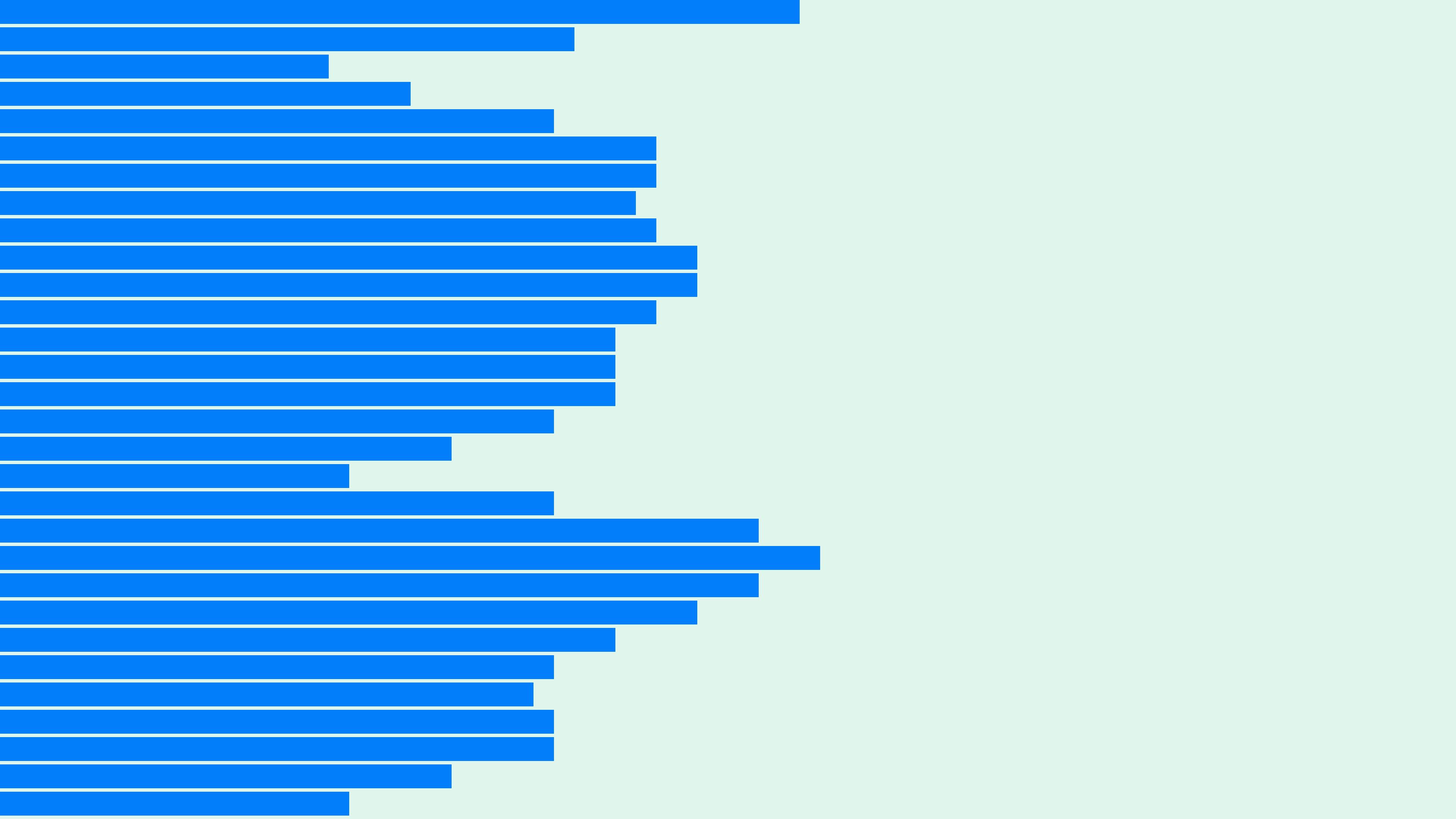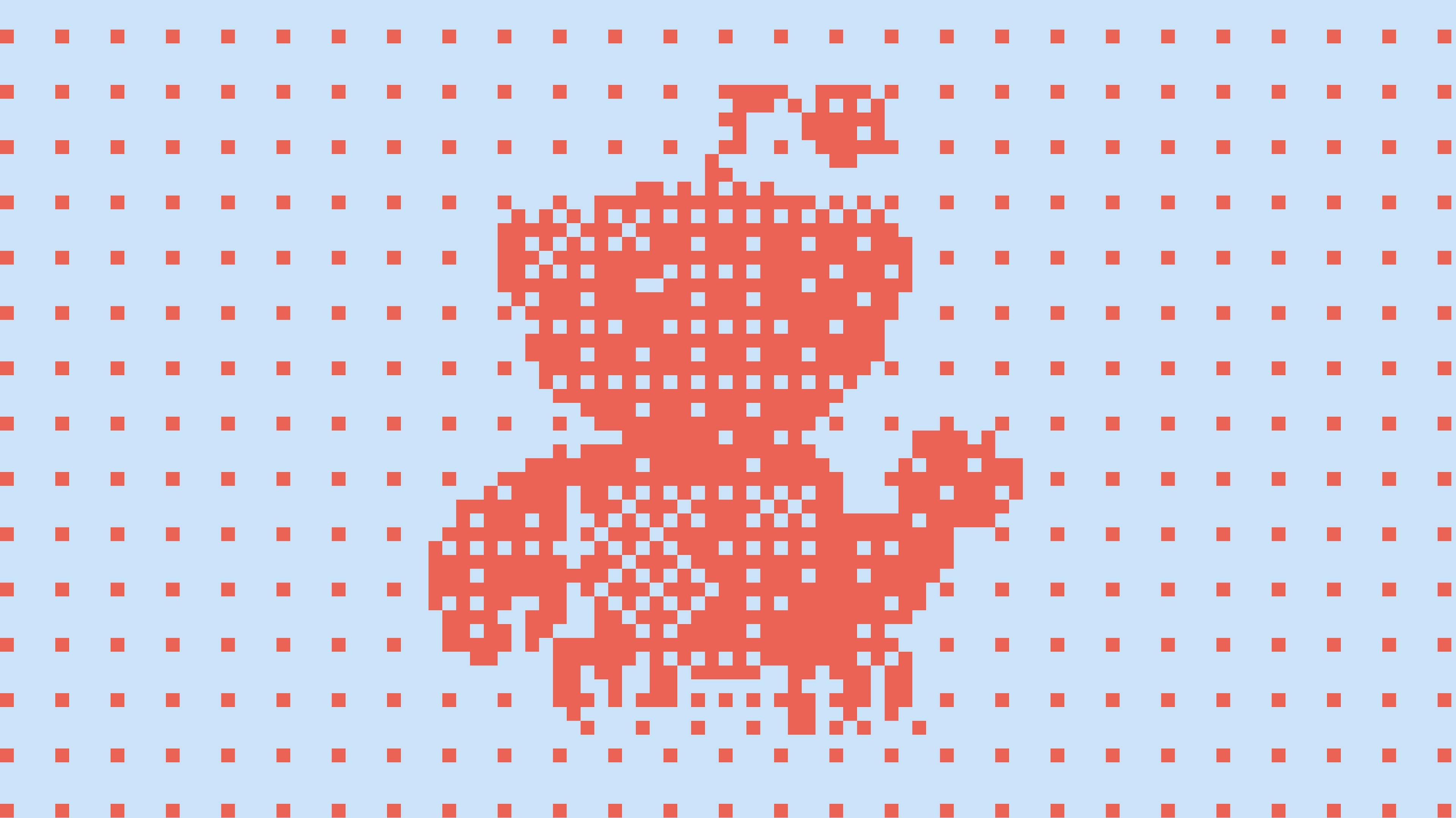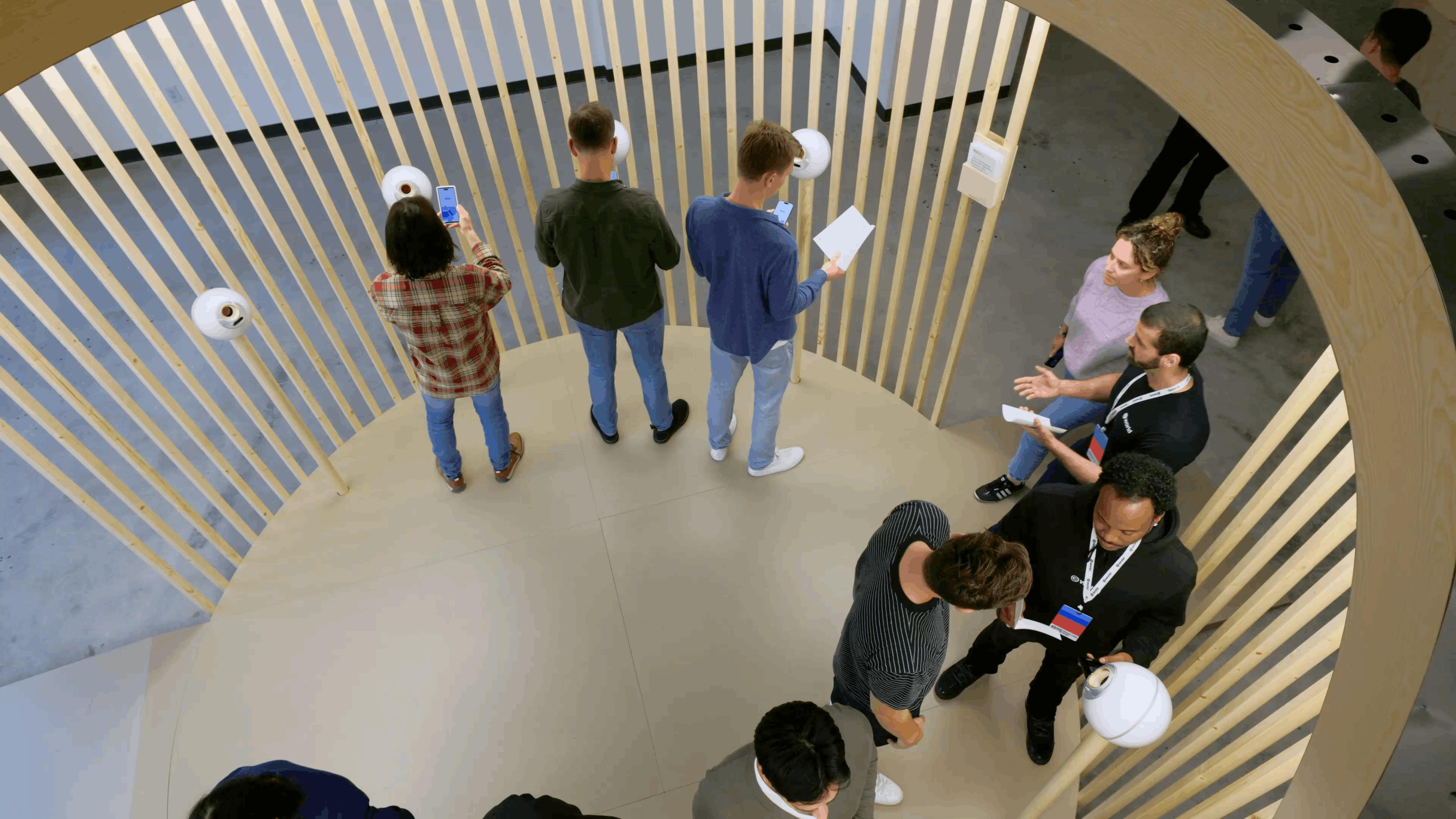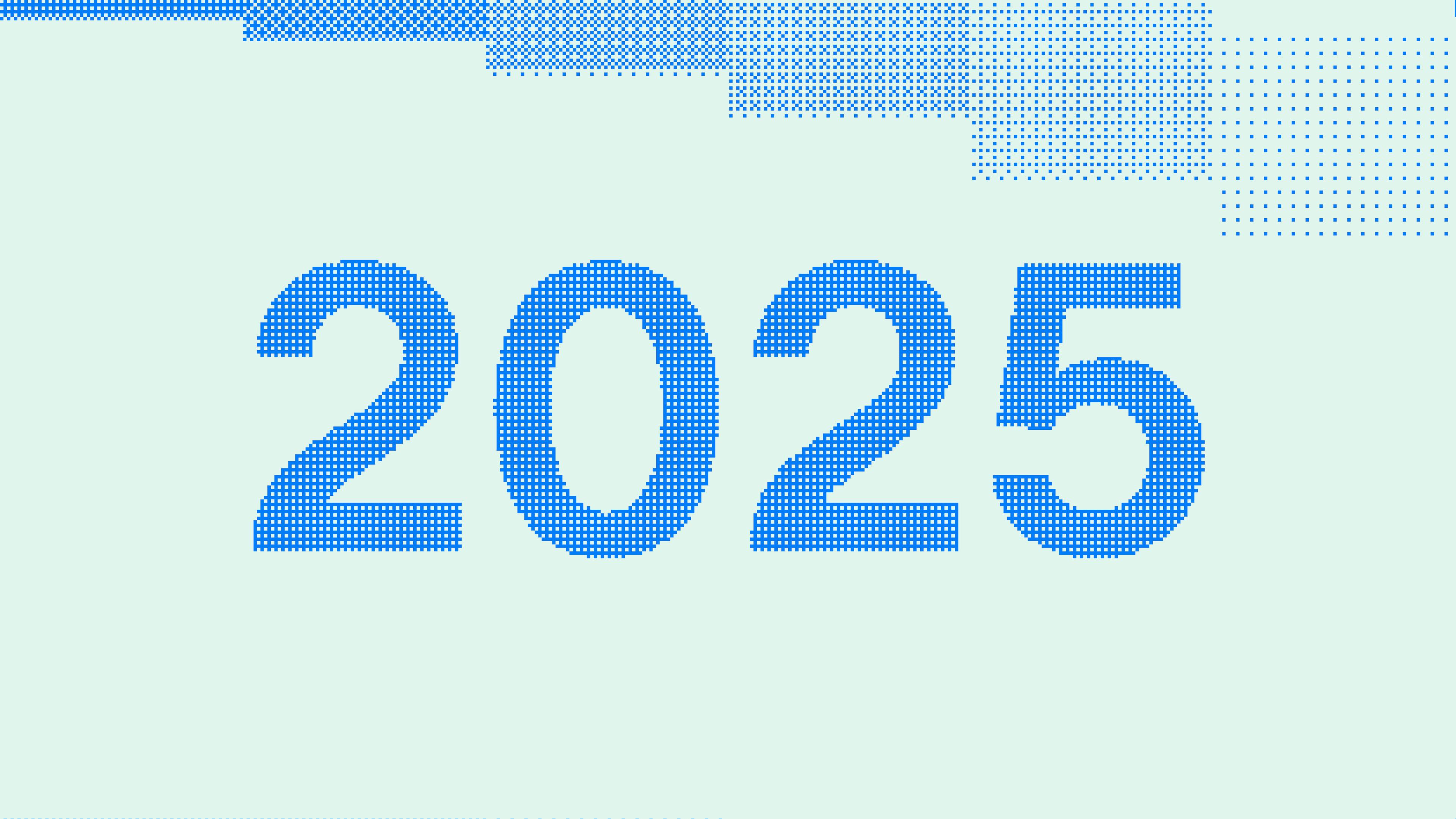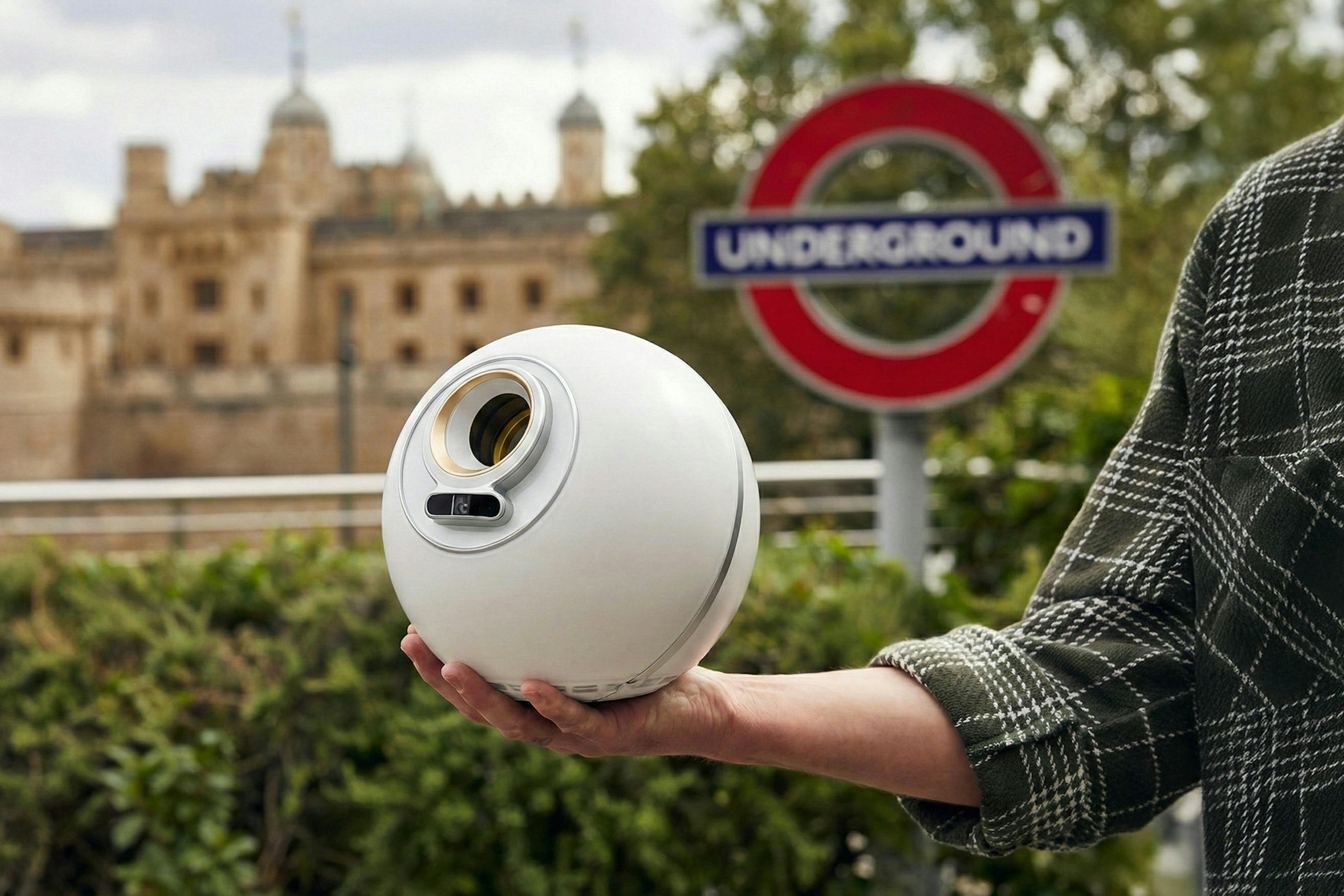
The UK stands at the forefront of artificial intelligence innovation in Europe. It also represents the latest country where individuals can access proof of human verification services powered by World, the real human network.
Launching during London Tech Week and at a time when 79% of recent UK-based survey respondents agree it’s important to prove you’re human without giving up personal information, individuals in the UK now have full access to World network, including proof of human verification services enabled by the Orb.
World proof of human verification services will be available from Thursday 12 June at several locations in London (visit Find an Orb for exact location and availability details) and over the coming months, rollout will include further London locations and major cities including Manchester, Birmingham, Cardiff, Belfast, and Glasgow.
Proving humanness online matters more than ever
As artificial intelligence creates new opportunities and reshapes our lives, governments, businesses and the British public face challenges to protect themselves and ensure that the AI age delivers on the opportunity it presents.
At the heart of these challenges is a fundamental issue: the growing difficulty in distinguishing whether online interactions are with humans or sophisticated AI systems. New research shows 75% of UK adults surveyed agree it’s now more important than ever to prove who’s real online - a clear signal that traditional verification methods are no longer meeting expectations.
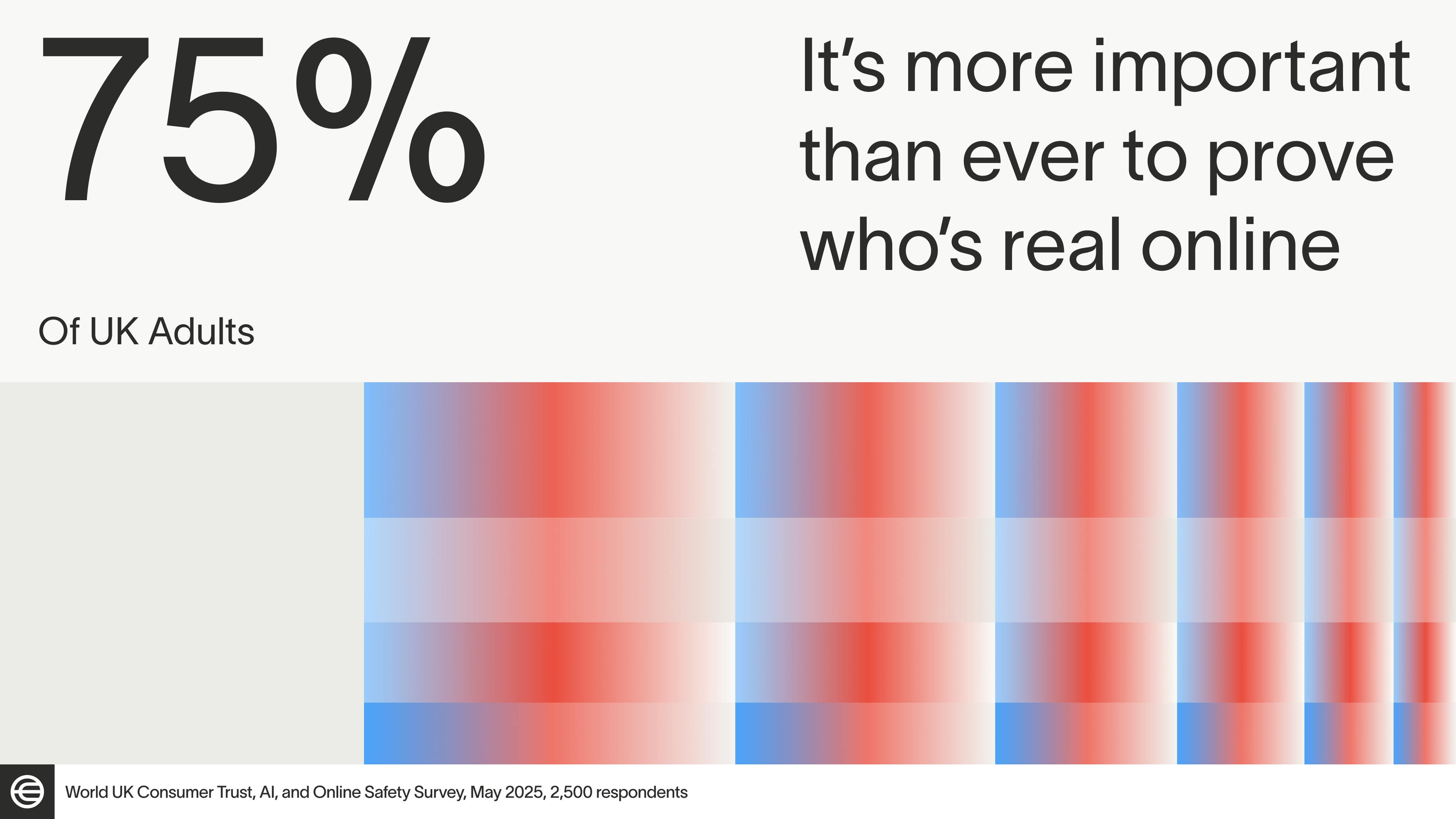
Privacy-centric technology addresses decreasing trust online
Trust in the digital world is rapidly eroding: 67% of people surveyed say they trust the internet less than ever before, and over half (53%) report questioning the authenticity of online content at least once a day.
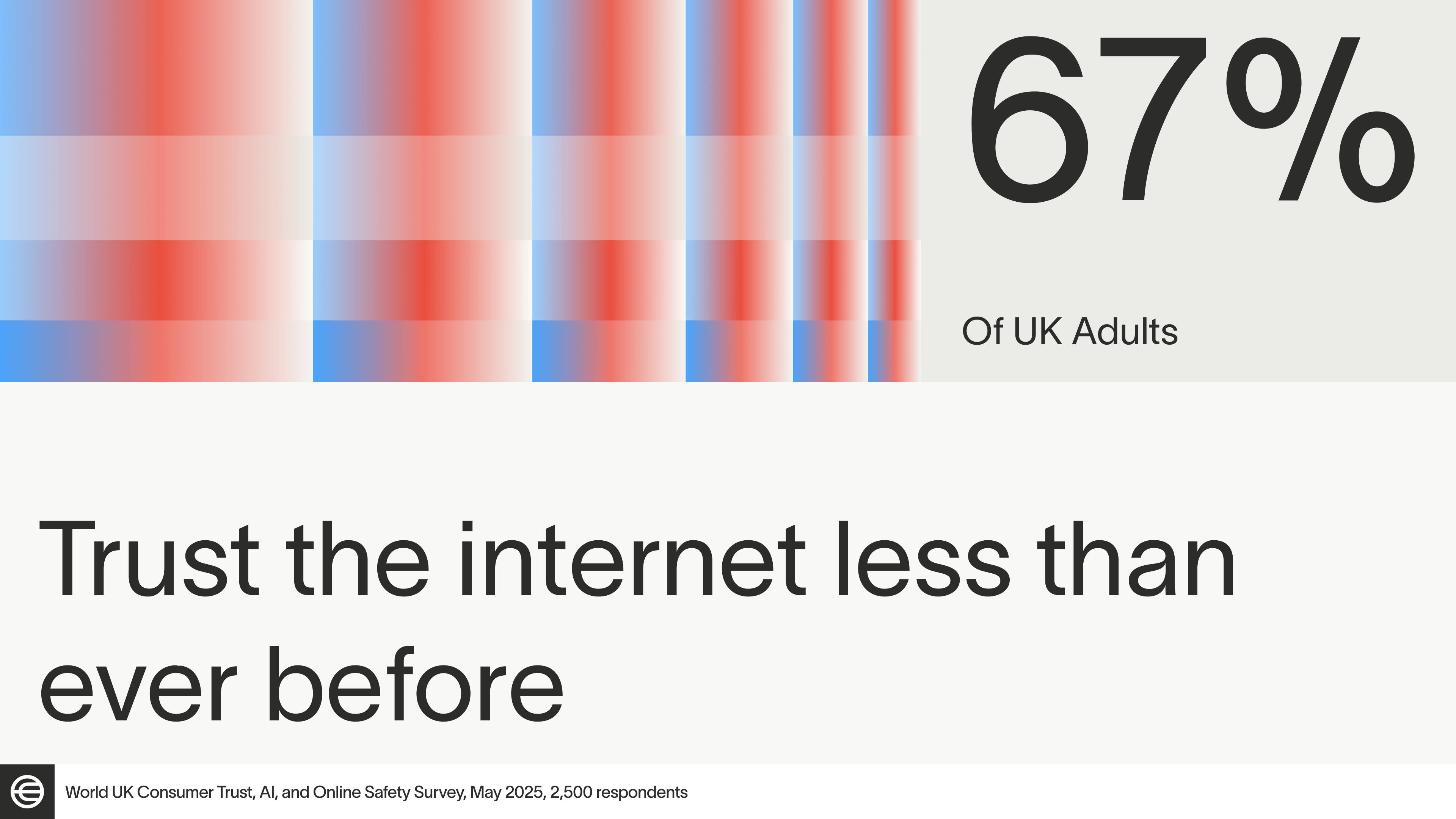
Consider the everyday situations where this uncertainty creates real problems. Whether you're using a dating app and want to be sure you're talking to a real person, a band ensuring your tickets go to genuine fans rather than profiteering touts, or a bank preventing fraudsters from opening accounts, knowing you're dealing with a real person is increasingly essential.
Among those surveyed using online dating services, 79% of people are concerned about catfishing and 58% have encountered fake profiles. These statistics speak to a growing appetite for verifying there is a real human behind an account, in a way that protects both users and platforms, without exposing personal data.
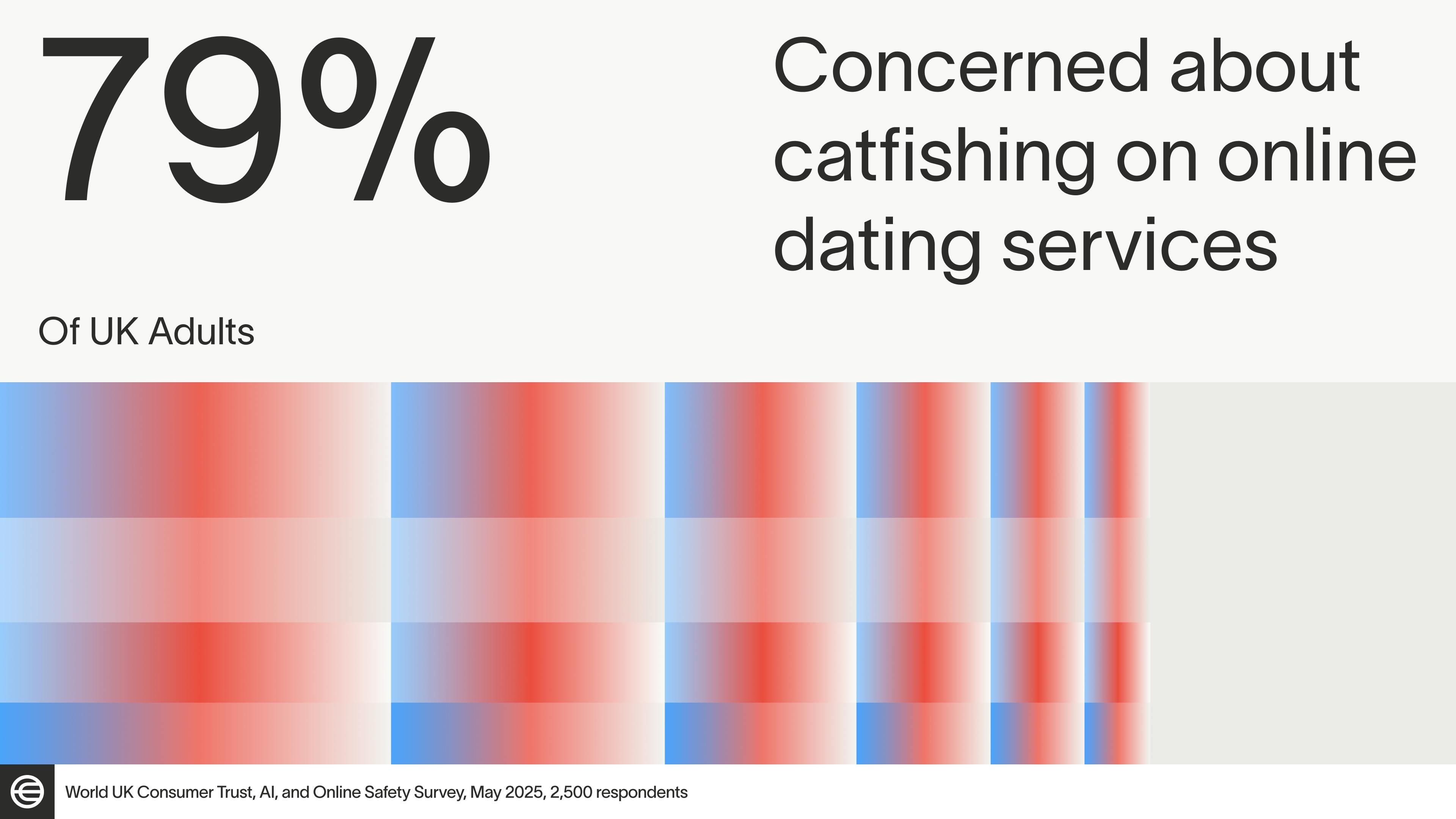
Even for governments, verifying that someone making an appointment or applying for financial aid is genuinely human has become a basic necessity. Preventing bad actors from using AI tools to bypass fraud protections and pass know-your-customer checks with digitally generated documents, while preserving consumers’ privacy is becoming increasingly important.
This is precisely what World delivers: a privacy-preserving, decentralised digital humanness protocol designed to distinguish humans from AI and protect digital systems from abuse.
How World Works
World Network is a global real human network designed for the AI age. At its core is the Orb—a specialised camera that confirms humanness and uniqueness while preserving individuals’ privacy. The Orb creates a digital credential, World ID, that proves someone is human without revealing who they are. No personal information or biometric data is stored by World, and verification data remains exclusively on the World ID holder’s mobile phone.
Once verified, individuals can use World ID to verify their humanness across digital services while maintaining anonymity. Through the use of cryptographic techniques called zero-knowledge proofs, they can prove they're human without disclosing any personal information or services being able to track you across the internet.
Utilizing World App, people can also add their e-Passport to their wallet, allowing them to prove their age and nationality online without revealing any private information to online services.
This network enables a future where online interactions can be trusted, public resources can be fairly allocated, and AI systems can reliably distinguish between humans and other AI—all while preserving individual privacy and personal control.
World ID is not intended to replace or serve as a government ID— World does not know who you are, just that you are a unique human. World ID complements existing systems, allowing companies, Governments and people to know they are interacting with a human and not a machine.
Learn more
To stay informed about World, visit the World website or subscribe to the blog below.
You can also join the daily conversation on all World social media channels, or get additional important information concerning the project by reading the World protocol whitepaper.
